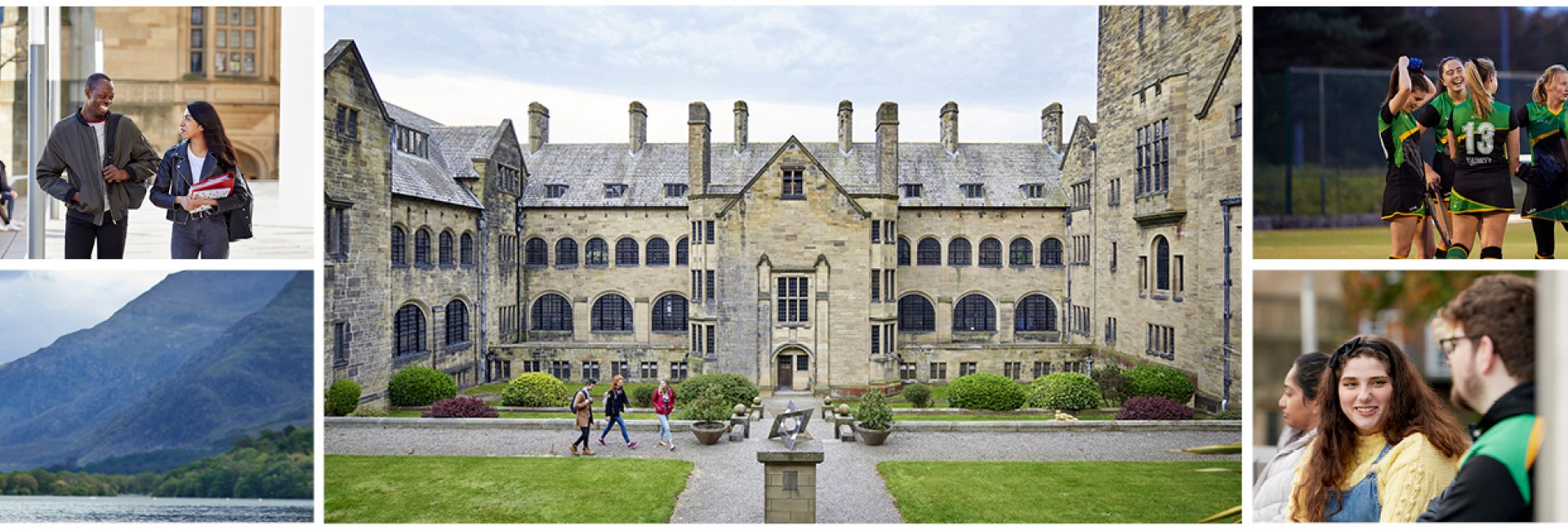Bangor University - Open Day
5 Jul 2025, 09:00
Bangor

On this Linguistics and Psychology joint honours degree, you will learn about behaviour from infancy to old age, and deal with the biological, social and individual factors that affect human psychology and language use.
Studying linguistics will enable you to learn about, understand and interpret many aspects of human language. On this Linguistics and Psychology course, you will study the ‘science’ behind language, including possible sounds used in speech and their combination (phonetics, phonology), how words are built up morphology), what distinguishes sentences from just strings of words (syntax), meaning (semantics and pragmatics), the effect that society, culture and norms have upon language use (sociolinguistics) and how languages change over time.
Linguistics is the study of how language works and how and why language is used. Linguists look at not only how people learn, understand and speak language, but also at the way different people use language differently. Linguistics has a theoretical dimension but also an applied dimension – such as language technology, language policy and language in education.
You will also have the opportunity to learn about the ways in which different languages are different or similar in terms of their grammar, how society and language go hand-in-hand, and the functions and status that different languages have across the world.
Psychology is the scientific study of how people behave, feel, think and learn. As a science and as a profession, Psychology makes a difference to people in the real world, by improving quality of life across a wide range of areas.
In Psychology, you will study the mind, thought and behaviour, and you will learn about how to describe and explain how people live, think, socialize and develop. You will get the opportunity to find about things like: the factors that govern human psychological behaviour, how our environment influences our thoughts and feelings, how children’s minds develop and change as they grow older, and about research methods and advances in the field of psychology.
‘Placement Year’ and 'International Experience Year’ options are available for this course. You will have the opportunity to fully consider these options when you have started your course at Bangor and can make an application for a transfer onto such a pathway at the appropriate time. You can find more information about these options on our website and if you have any questions, please get in touch.
If you don’t have the required qualifications for this degree-level course or are looking to re-enter education after time away from study, then a Foundation Year Programme might be the right choice for you. Please see English Language and English Literature (with Foundation Year) QQCF.
For details of the modular structure, please see the course description on Bangor University's website.

Learn what it's like to study at Bangor University. From key stats to campus highlights, open days, and more - find everything you need to know here.
The following entry points are available for this course:
Discover what it's like to study Linguistics and Psychology at Bangor University: insights on the course, making friends, personal statement tips, uni prep, and recommended books, podcasts, and videos.
We allow you flexibility in meeting our entry requirements and accept a broad range of qualifications. We are happy to accept combinations of the qualifications listed above, as well as alternative Level 3 qualifications such as City & Guilds, Access and Cambridge Technical Diplomas. We also welcome applications from mature learners and/or those with other qualifications are considered on individual merit. If you cannot find the qualifications that you are studying (or have completed) listed above, please contact us for advice: applicantservices@bangor.ac.uk
If you don't think you'll meet the entry requirements specified, you may be able to gain entry to this course via a Foundation Year route. Please see: English Language and English Literature with Foundation Year (QQCF).
International Candidates: school leaving qualifications that are equivalent to A levels/Level 3 and/or college diplomas are accepted from countries worldwide (subject to minimum English Language requirements), details at: www.bangor.ac.uk/international/applying/entryrequirements
For the most up-to-date information on acceptable English Language proficiency qualifications, please visit our webpage below. https://www.bangor.ac.uk/international/future/englishlanguage
This section shows the range of grades students were previously accepted with - learn more. It is designed to support your research but does not guarantee whether you will or won't get a place. Admissions teams consider various factors, including interviews, subject requirements, and entrance tests. Check all course entry requirements for eligibility.
Students aged 17/18 who applied to this course were offered a place.
See how students with your grades have been accepted onto this course in the past.
Operated by the Office for Students
Employment after 15 months (Most common jobs)
Go onto work and study
The number of student respondents and response rates can be important in interpreting the data – it is important to note your experience may be different from theirs. This data will be based on the subject area rather than the specific course. Read more about this data on the Discover Uni website.
| Location | Fee | Year |
|---|---|---|
| Republic of Ireland | £9000 | Year 1 |
| England | £9000 | Year 1 |
| Northern Ireland | £9000 | Year 1 |
| Scotland | £9000 | Year 1 |
| Wales | £9000 | Year 1 |
| Channel Islands | £9000 | Year 1 |
Tuition fee status depends on a number of criteria and varies according to where in the UK you will study. For further guidance on the criteria for home or overseas tuition fees, please refer to the UKCISA website.
Tuition fees and scholarship information for International applicants can be found here:
https://www.bangor.ac.uk/international/tuition
Bangor (Wales)
LL57 2DG
Visit our website Visit our course page